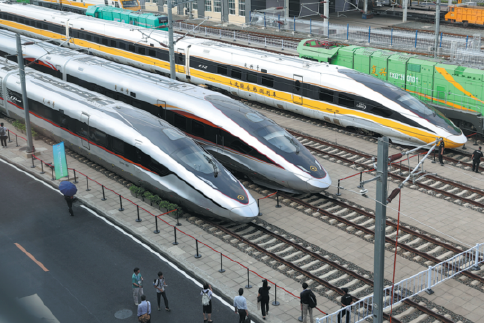Renewable energy key way forward for green transition


Shu also emphasized the importance of the use of long-term power contracts in supporting the sustained expansion of renewables, adding that sustained development of renewables also requires a combination of localized projects and West-to-East power transmission.
For the power market in China, enlarging power balancing areas and establishing market-based dispatch play an important role in optimizing grid operation for renewables integration, he said.
Meanwhile, Shu said it is as important to give full play to the role of coal power as a cornerstone in China's energy mix to ensure domestic energy security, as China has been taking orderly steps to increase advanced coal production in recent years to ensure sufficient power supply during peak hours and extreme weather, aiming to have coal play an important role as an emergency backup.
The Rocky Mountain Institute, an independent nonprofit organization focused on the transition to clean energy, said the power sector — which contributes about 40 percent of the country's carbon emissions today — is at the heart of climate change solutions and the energy transition.
The broad application of digital technology and artificial intelligence is vital for enhancing the power grid's ability to cope with supply and demand fluctuations, it said.
The International Energy Agency said in a recent report that power system flexibility is the most important cornerstone of a fundamentally transformed power system.
It believes utilizing advanced flexibility measures such as smart electric vehicle charging, demand-side response and electricity storage can support the reliable integration of extremely high shares of variable generation without any substantial variable renewable energy curtailment in 2035, while simultaneously reducing power system operating costs between 2 to 11 percent and reducing the need for fossil fuel generation capacity by up to 30 percent.
Chen Guoping, deputy director of State Grid Corp of China, said conventional power supplies will play more of a role in regulating and guaranteeing power, while new energy sources will gradually become the main body of electricity consumption.
The rise of low-cost wind and solar power, deployment of distributed energy resources and increasing digitalization are accelerating changes in power systems in China, Chen said during the forum.
Power system flexibility is also a crucial element for a successful transformation of the energy sector and growing proportions of wind and solar power in China can be facilitated by grid infrastructure, demand-side responses and electricity storage. Changes to the market, policy and regulatory frameworks are crucial for unlocking flexibility, he added.




































